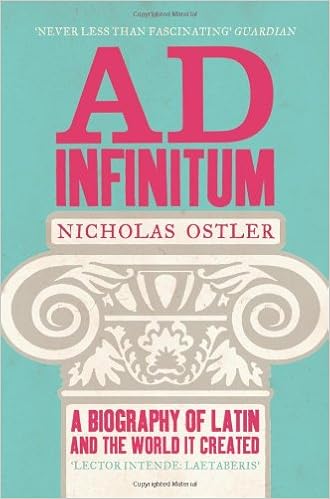Jerry Pournelle's blog (on the sidebar to the right if you're in a PC browser, otherwise
here) has a recurring theme where he details his struggles with recalcitrant Microsoft products and sundry other applications.
I felt his pain today. The laptop refused to connect to the scanner (Epson BX630FW). I tried all the usual stuff: restarted everything, reconnected all devices to the router, reinstalled the printer software, switched from WiFi to an Ethernet connection, ... .
Result: stuff prints but the scanner remains unrecognised. My best guess is that something in the printer/scanner has broken. The workaround is just to take pictures via the pretty good camera on my Nexus 6 phone - I'm in no hurry to replace the five year old Epson device.
---
Work on the 'famous' chatbot has paused. Reason: I know how to do it and consequently I'm already bored.
The interesting hurdle was my
bucket-list objective of getting a proper, FOL resolution theorem prover to work. Now that it does (gratifyingly high in
Google searches), moving on to a planner has lost much of its appeal.
I suspect much of the power of a chatbot anyway is in the data (ie the data-fill), not the sophistication of the underlying architecture or algorithms. This makes me even less excited.
A deeper problem. A chatbot needs to interact with conversationalists and to learn. Minimally, this needs Internet access and engagement with a messaging platform such as Skype, Twitter or Facebook. But if you start from Common Lisp the integration problems look rather daunting and even expensive. I'm not enthused about shifting to Javascript or Python, where such integration would probably be easier.
So I'm awaiting some conceptual innovation sufficiently exciting to remotivate me. Something like cracking consciousness perhaps 😎 ...?
---
My favourite article today:
this meditation from
Greg Cochran disinterred from 2013 and still completely relevant.
"... Syria was born for trouble. Although we all know that ethnic diversity is our strength, better than ice cream or unicorn poop, it appears that Syria (like much of the Middle East) has managed to acquire too much of a good thing. Paradoxical as it may seem, Syria is actually overly diverse.
There are very ancient Christian communities, as well as Kurds (who aim for an independent Kurdish state, an idea that horrifies Turkey), but the real fight is between the Sunni Arabs (about 60 percent of the country) and the Alawites, who run the show and make up about 12 percent of the population. I’m sure that most of my readers are fully conversant with every detail of the history and practices of the various Muslim denominations,—just as our lawmakers are—but let me talk about the Alawites for a moment.
The Alawites have an esoteric religion, one in which their most important beliefs are kept secret from outsiders. Since those beliefs are only revealed through a long process of initiation, even most Alawites don’t know what they are.
We know some things, most of which don’t sound at all like Islam. Alawites drink wine: they celebrate Christmas and Easter. They reject to the call to prayer and the pilgrimage to Mecca. They have no places of worship. Women among the Alawites are not veiled, and enjoy greater freedom than among Sunnis or Shi’ites, but it seems that this is the case because they are believed to be soulless—they are never initiated into the mysteries. Alawites also seem to believe in reincarnation.
Traditionally, Alawites were considered non-Muslim and treated like dirt—worse than Christians or Jews. You can see how the Sunni majority might resent being ruled by them—indeed, it’s hard to imagine how that ever came to pass.
The roots of Alawite dominance go back to the French colonial era. Most Syrian Muslims opposed French rule and refused to serve in the local gendarmerie—but the Alawites did. After independence, the Alawites continued to enter the armed forces in large numbers, partly because they were poor as heretical church mice. At first, the highest ranks in the army were filled by Sunnis, but each coup led to the expulsion of Sunni generals on the wrong side, and there were many coups. The political struggles bred mutual suspicion among the Sunnis, but the Alawites stuck together. The Alawites were also overrepresented in the Baath party.
So, while the Baath party took over in 1963, the Alawites took over in 1966—and they haven’t let go yet.
The thing is, when you ride the tiger, you can’t let go. Although they have made efforts to build support outside their sect, through nationalist and redistributionist policies, the Alawite government has always faced violent opposition. They’ve put down full-scale revolts, most notably in Hama, 1982, where they leveled the city with artillery, killing tens of thousands. All that official violence means that they can’t afford to lose. Once the Alawites were despised, but now they’re hated. At this point, Peter W. Galbraith, former ambassador to Croatia, says “The next genocide in the world will likely be against the Alawites in Syria.” ...
The tone of the whole article is ironic and satirical. The comments - worth a look - confirm that Americans don't do irony.
"Reinhold says:
September 10, 2013 at 5:48 pm
Is this some kind of a troll? If not: proof that scientists are often brain-dead regarding politics."
A little later another commentator sadly remarks:
"Anonymous says:
September 11, 2013 at 8:49 pm
So far one out of seven people realized that the proposal is satire. That ratio is probably above average."
The standard procedure for Sunni Jihadis with Alawite captives is to behead them. If I hear the
neocon-signposting phrase, "bombing his own people", one more time ... .






























